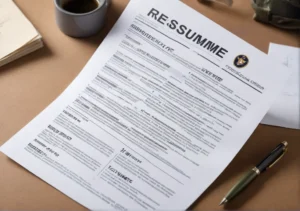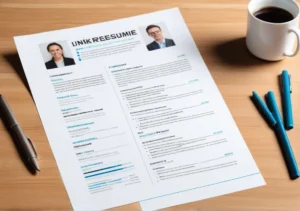Life after a dishonorable discharge might feel like hitting a brick wall at full speed—every door to opportunity appearing slammed shut. You’re the underdog now, in a fight most people don’t know how to win. Here, we’ll share real, actionable steps that can support you as you navigate the bumpy road ahead.
This post promises to become your field guide through the daunting terrain of job hunting post-dishonorable discharge, mapping out strategies that can help you move forward.
Quick Takeaways:
- Explore second-chance industries and tailor your resume to highlight transferable military skills like leadership and discipline.
- Use veteran support organizations and online networks to connect with empathetic employers and find job opportunities.
- Engage in continuous learning and consider tailored volunteering to gain relevant experience and demonstrate your work ethic.
Can You Get a Job with a Dishonorable Discharge?
Landing a job can feel like an uphill battle when you’ve got a dishonorable discharge in your past. This type of military separation often carries a heavy stigma—after all, it’s reserved for those who’ve violated the Uniform Code of Military Justice in serious ways. For many employers, it sends up a red flag, signaling potential behavioral issues or untrustworthiness.
However, it’s important not to lose hope. Despite the initial biases, not all doors are closed. Employers vary widely in their attitudes and policies, and some may be more focused on your current skills and how you can contribute to their team now. What’s crucial is understanding the legalities and restrictions at play. Certain industries may have regulations that make it challenging for someone with a dishonorable discharge to gain employment, especially those that require security clearances or involve law enforcement.
Breaking Down the Barriers: How Do You Start?
Come to terms with your past, but don’t let it dictate your future. Begin the job hunt process by acknowledging what happened and then shifting your focus to what’s ahead. It’s about bouncing back and showing the world— and potential employers—what you’re made of.
Organize yourself. Tidy up your resume to reflect your valuable skills, and be ready to tackle those tough interview questions with grace. Don’t just say you’ve learned from past experiences—show it. Perhaps, you’ve taken courses, volunteered, or worked on personal development that’s shaped you into a better person and professional.
Reach out for support, because you’re not alone in this. There’re organizations dedicated to helping veterans with dishonorable discharges. A shining example is the Discharge Upgrade Legal Clinic offered by some veteran support groups, which assists in correcting discharges and securing the benefits that can help you move forward.
What Should You Tell Potential Employers?
When the time comes to discuss your military service with potential employers, you’ll want to strike a balance between honesty and optimism. If it comes up, don’t dodge the topic. Instead, tactfully explain that you’ve learned from your experiences and are ready to bring your strengths to their company.
Emphasize the positive. Talk about how you’ve grown since your discharge, the skills you’ve retained from your military service, and how they translate to the civilian employment sphere. It’s about narrating your story in a way that shows resilience and personal growth.
When it comes to legal disclosure, it’s complex. While you’re not always required to divulge the details of your discharge, in some industries or for certain positions, full disclosure might be legally mandated. You might want to consult with legal counsel beforehand. Remember, veterans have rights in the job market, and understanding these can empower you in your search.
In sum, a dishonorable discharge doesn’t define you. With the right approach, support, and a touch of tenacity, you can carve out a new path for yourself in the civilian world.
Where Can You Find Sympathetic Employers?
Finding a job after a dishonorable discharge can feel like you’re climbing uphill with a heavy pack. But here’s some good news—there are employers out there who may be willing to give you a second chance, recognizing that everyone deserves the opportunity to turn over a new leaf.
Identify Second-Chance Employers
Second-chance industries are your best bet. These industries often prioritize skill and work ethic over background—construction, culinary arts, manufacturing, and logistics are just a few areas where you may find more open doors. Companies within these sectors may even have established programs specifically designed for hiring veterans.
Leveraging Military Skills
When looking for job opportunities, lean into your unique military skill set. Leadership, discipline, and teamwork are invaluable assets in any workplace. Identify these transferable skills in your resume and job interviews to demonstrate how they can benefit potential employers.
Networking Strategies
Networking is key. Tap into resources like veteran-friendly organizations—they can sometimes offer a foot in the door with sympathetic employers. Using online platforms such as LinkedIn to connect with other veterans and potential employers can also help you widen your search. Websites like VetJobs or Hiring Our Heroes can be goldmines for opportunities and connections.
How Can You Upgrade Your Skills and Qualifications?
In today’s job market, packing your arsenal with up-to-date skills and qualifications is like adding stripes to your uniform; it makes you stand out and can be the key to opening doors. Regardless of your discharge status, you can still be a learner and a go-getter.
Educational Opportunities
If you’ve got the drive, there are numerous educational opportunities for personal and professional development. Community colleges often have open enrollment policies and offer certificate programs that can bolster your job prospects. Moreover, online learning platforms such as Coursera or Udemy offer courses that you can complete at your own pace, many of which are taught by industry professionals.
Importance of Continuous Learning
The commitment to continuous learning can’t be overstated. It’s a clear signal to employers that you’re proactive and serious about moving forward. It’s also a way for you to rebuild your confidence and stand out from other candidates.
Unique Advice: Tailored Volunteering
Here’s a tip that’s not commonly found on many blogs: tailored volunteering. Find a nonprofit that aligns with the industry you’re interested in and offer your skills on a volunteer basis. This will not only give you current experience to list on your resume but also connects you with professionals in the field and demonstrates your work ethic.
Let’s wrap this up by reminding you that a dishonorable discharge doesn’t have to spell the end of your career. With the right strategy, a willingness to learn and adapt, and a healthy dose of perseverance, you can find your way back into the workforce and onto a fulfilling career path. Remember, the journey of a thousand miles begins with a single step—so lace up your boots and take that leap of faith.






